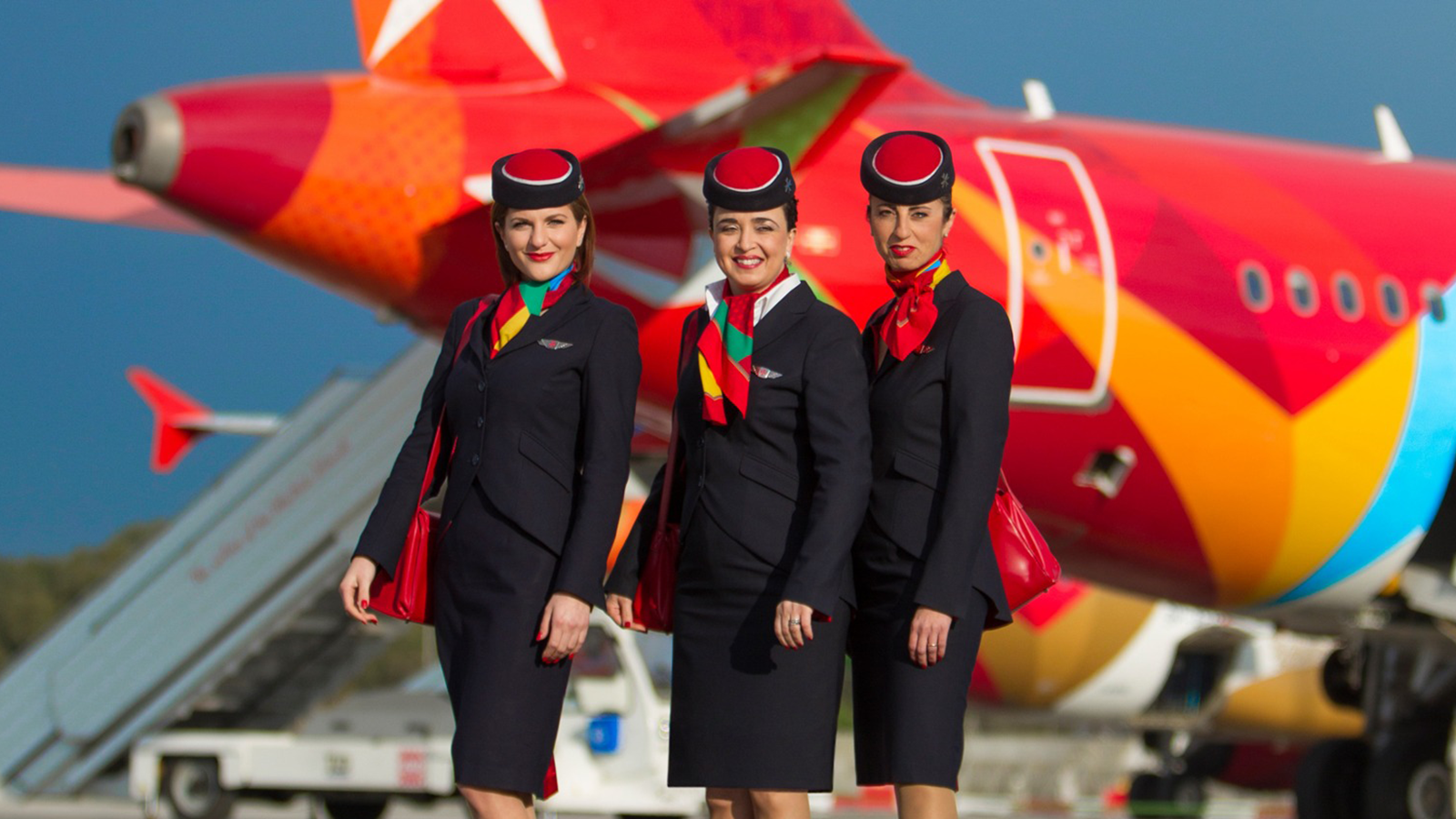Air Malta Ordered to Compensate Former Cabin Crew Members

Introduction
In a significant legal development, the beleaguered national carrier Air Malta has been directed by an industrial tribunal to pay a sum of €585,056 to 33 former cabin crew staff members. The tribunal found the airline guilty of discrimination and breaching the principle of equal pay for equal work. This landmark decision comes at a critical juncture for Air Malta, which is grappling with its own future amid financial challenges and regulatory scrutiny.
Legal Battle Concludes with Victory for Cabin Crew Members
The legal battle dates back to 2018 when 42 cabin crew workers, along with their union, initiated a case against Air Malta, alleging discriminatory clauses in the 2017 collective agreement. This agreement, according to the complainants, violated their fundamental rights by introducing a flawed methodology for calculating pay increases. Specifically, the wage increases up to 2022 were determined based on an individual employee’s highest take-home pay over a four-year period.
While the collective agreement stipulated that cabin crew members should receive a minimum of €1,000 more than their highest annual take-home pay between 2014 and 2017, the complainants argued that this approach was discriminatory. They highlighted that the calculation included both basic salary and additional allowances or overtime pay. This led to an unjust situation for crew members who didn’t engage in significant overtime or additional duties during the specified period.
Tribunal Verdict and Compensation Details
The industrial tribunal ruled in favor of the cabin crew members, determining that the 2017 collective agreement was inherently discriminatory. The tribunal found that the agreement created disparities not only among employees within the same pay scale but also between employees in different pay scales. This unjust treatment extended to those on lower pay scales earning more than those on higher scales due to the problematic calculation method.
Furthermore, the tribunal also recognized that the agreement disproportionately affected employees who had been on reduced working hours between 2014 and 2017 for family reasons or were on maternity leave. Consequently, Air Malta was ordered to pay a total compensation amount of €585,056 to the affected 33 former cabin crew members within a one-month timeframe.
The individual compensation amounts varied depending on factors such as an employee’s tenure, role, and the extent of discrimination they faced. Notably, the highest individual compensation awarded in this case amounted to a significant €35,000, underscoring the magnitude of the airline’s breach of equal pay principles.
Air Malta's Uncertain Future
This ruling comes as Air Malta’s future remains uncertain. The airline, after half a century of operation, is on track to cease operations by the end of the year. This decision was prompted by the European Commission’s communication to the Maltese government that a proposed €290 million aid package would not receive approval under the EU’s state aid regulations. The financial challenges and regulatory hurdles have cast a shadow over the airline’s viability.
Air Malta’s chairman and CEO, David Curmi, who commands a monthly salary of €21,500, has announced plans for the establishment of a new national airline. This approach echoes the restructuring of Alitalia, which was phased out to make way for the new Italian flag carrier ITA in 2021. However, Finance Minister Clyde Caruana has expressed reservations about this course of action, emphasizing that the decision to shutter Air Malta is not yet definitive. The final outcome, Caruana asserted, hinges on the European Commission’s verdict regarding the potential provision of additional state aid to the airline.
Challenges Amid Regulatory Precedents
The possibility of Air Malta securing state aid appears increasingly slim, especially following a recent ruling by the EU General Court. This ruling invalidated the European Commission’s approval of German state aid worth €6 billion granted to Lufthansa during the Covid-19 pandemic. The court’s decision has set a precedent that places heightened scrutiny on state aid granted to struggling airlines in the aftermath of the pandemic.
Conclusion
The industrial tribunal’s ruling against Air Malta highlights the significance of upholding equal pay principles and eradicating discrimination within the workplace. This legal victory serves as a testament to the cabin crew members’ perseverance in seeking justice for the unequal treatment they endured. As Air Malta navigates a challenging period in its history, the broader aviation industry watches closely to see how the airline’s fate unfolds within the context of regulatory compliance and financial sustainability.
Frequently Asked Questions (FAQs)
What was the basis of the legal case against Air Malta?
The legal case centered on allegations of discrimination and breach of equal pay principles by the cabin crew members of Air Malta. They contested the 2017 collective agreement’s calculation method for pay increases, arguing that it unfairly included allowances and overtime, leading to unequal treatment.
What was the outcome of the industrial tribunal’s decision?
The industrial tribunal ruled in favor of the cabin crew members, finding the 2017 collective agreement to be discriminatory. Air Malta was ordered to compensate 33 former cabin crew members with a total sum of €585,056 for the breach of equal pay principles and discrimination.
Why did some cabin crew members withdraw from the case?
Out of the 42 workers who initiated the case, nine chose to withdraw after securing alternative employment. The remaining 33 members continued with the legal proceedings to seek compensation for the alleged discrimination.
What is the significance of the compensation amounts awarded to the cabin crew members?
The compensation amounts varied based on factors such as an employee’s role, tenure, and the extent of discrimination faced. The highest individual compensation granted in this case amounted to €35,000, underscoring the severity of the breach of equal pay principles.
What is the future of Air Malta in light of this ruling?
Air Malta’s future remains uncertain as the airline faces financial challenges and regulatory scrutiny. The European Commission’s communication to the Maltese government regarding the rejection of a proposed €290 million aid package has cast doubt on the airline’s viability. The establishment of a new national airline, as proposed by Air Malta’s CEO, is being weighed against the possibility of additional state aid, pending the European Commission’s decision.
Recommended Posts

Financial Aspects of Doing Business in Malta
July 26, 2024

The Rise of Digital Banking Solutions in Malta
July 24, 2024





